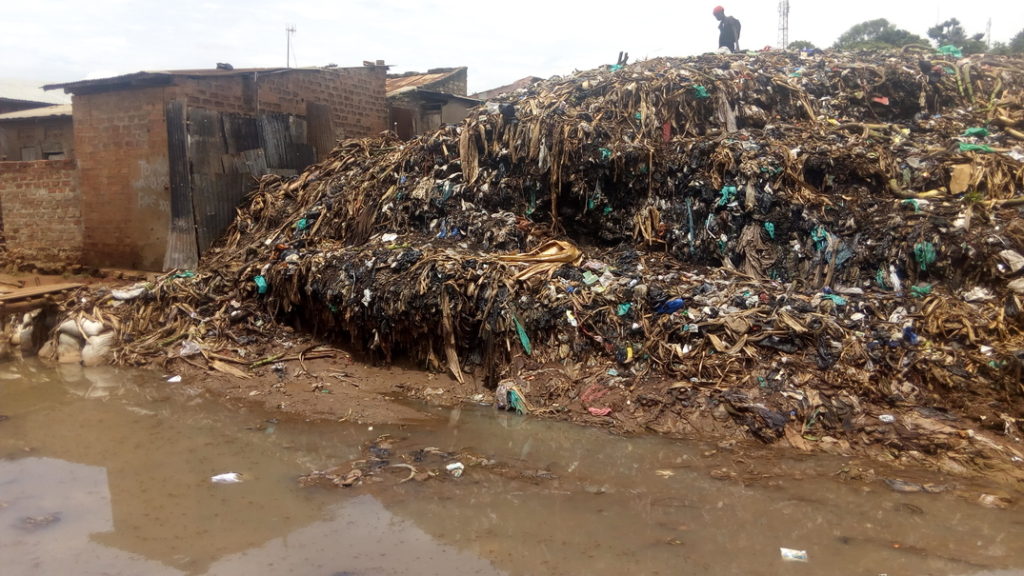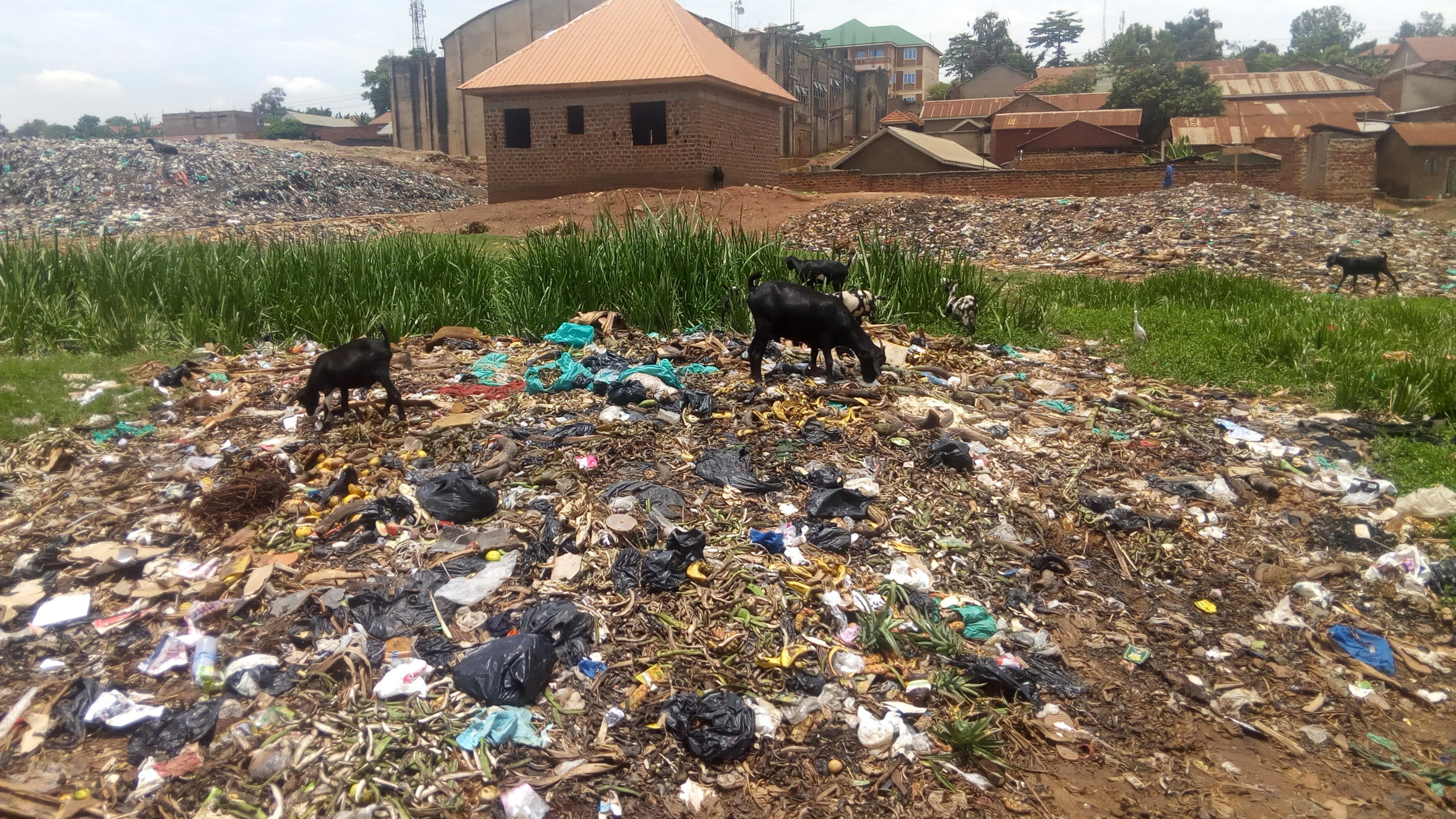KAMPALA, UGANDA- A group of about five men pushing wooden wheelbarrows full of garbage to an illegal dumping site in a Kampala suburb got into a scuffle with the landowner and their wheelbarrows were confiscated for illegal dumping.
This happened late December last year, when the church known as Life Resurrection Centre located in Nsambya Ave-maria, a Kampala suburb, decided that residents must stop dumping on the empty space covering a size of about 2 hectares of land.
In a meeting held with local leaders of the area, lead pastor Tom Ssembera said, “those dumping on the land where doing it illogically and is time the church started using its land “
Scuffles about illegal dumping are very common in all slum areas of Uganda’s capital Kampala and there are many illegal dumping sites in the city.
In most developing countries, it is the urban authorities that are responsible for waste management. Waste management is one of the most visible urban services whose effectiveness and sustainability serves as an indicator for good local governance, sound municipal management and successful urban reforms but this poor garbage disposal has always been attributed to the loopholes in the city’s waste law.
 Local individual garbage collectors took over the job of collecting garbage from households in the slums and are littering Kampala and dumping garbage illegally.
Local individual garbage collectors took over the job of collecting garbage from households in the slums and are littering Kampala and dumping garbage illegally.
This came after Kampala’s capital city authority announced that it was no longer responsible for collecting garbage but had entered into a partnership with private companies where city dwellers would pay a monthly a fee between 3000 and 30,000 shillings (about $1 – $10) for garbage collection from residential and commercial buildings.
Kampala Lord Mayor Erias Lukwago said, “it’s true we still have a problem with garbage collection, and we have come to understand that some private service providers are incompetent”.
Mayor Lukwago further revealed that his council intends to amend the KCCA Solid Waste Management Act so that they regulate their relationship with the private service providers.
“Some of them don’t have enough trucks for garbage and are actually overcharge their clients, hiking collection fees which are not sanctioned and regulated by the Authority yet we have people who cannot afford to pay and we have to cater for them,” he said.
However, in a telephone interview with Isaac Katureebe, the director of Homklin company (a service provider company collecting garbage), he said “The problem is that KCCA has not done enough sensitization among city residents on how to manage garbage,” he said.
The waste management policy under the City Solid Waste Management Act 2000 states that every owner or occupant of a dwelling or commercial premises is responsible for waste generated at those premises until it is collected by KCCA.
Much as the above policy has not been amended, KCCA no longer collects garbage from residential and commercial buildings. This job has now been taken over by private companies like Nabugabo Up deal Joint Venture, Homeklin Services (U) Limited and Kampala Solid Waste Management Consortium Limited who charge any money they want without involving Kampala Capital City Authority (KCCA).
This has become expensive to poor city dwellers who can’t afford the money these companies charge per month and have now restored to local individual garbage collectors who charge very little and dump garbage illegally around the city.
Most roads in the slum areas of Kampala and its outskirts are amassed with piles of polythene bags full of garbage every morning.
Most illegal dumping sites are close to sewage points, which flows direct into a big water collection channel known as Nakivubo Channel that also flows southwards towards Lake Victoria, world’s second-largest freshwater lake.
Murchison Bay, which is referred to as the mouth of the Lake Victoria has, over the years, become clogged with all kinds of rubbish, including plastic materials. This, according to environmental experts, poses danger to breeding grounds of fish. Plastics could also end up in the food chain of fish and birds.
A recent report by the UN Environment Programme listed Lake Victoria as among African water bodies whose water level is falling due to environmental degradation and climatic changes.
Africa is losing its natural beauty and environment to different forms of degradation especially solid waste pollution.
According to the World Bank, Africa generates about 70 million tonnes of waste (both solid and non-solid) every year.
Sustainable management of municipal solid waste (MSW) continues to be a challenge for the majority of African cities. Although Africa is the least urbanized continent, it currently has the highest rates of urbanization and urban population growth. With the urban population growth, the generation rates of MSW are expected to increase more than three-fold, further amplifying the challenge of managing this waste. Sub-Saharan Africa is projected to be the world’s fastest-growing region for waste by 2050, before which waste generation policies should be put in place to arrest the negative effect of waste that can lead to outbreaks of diseases like cholera.
Images provided by the author

